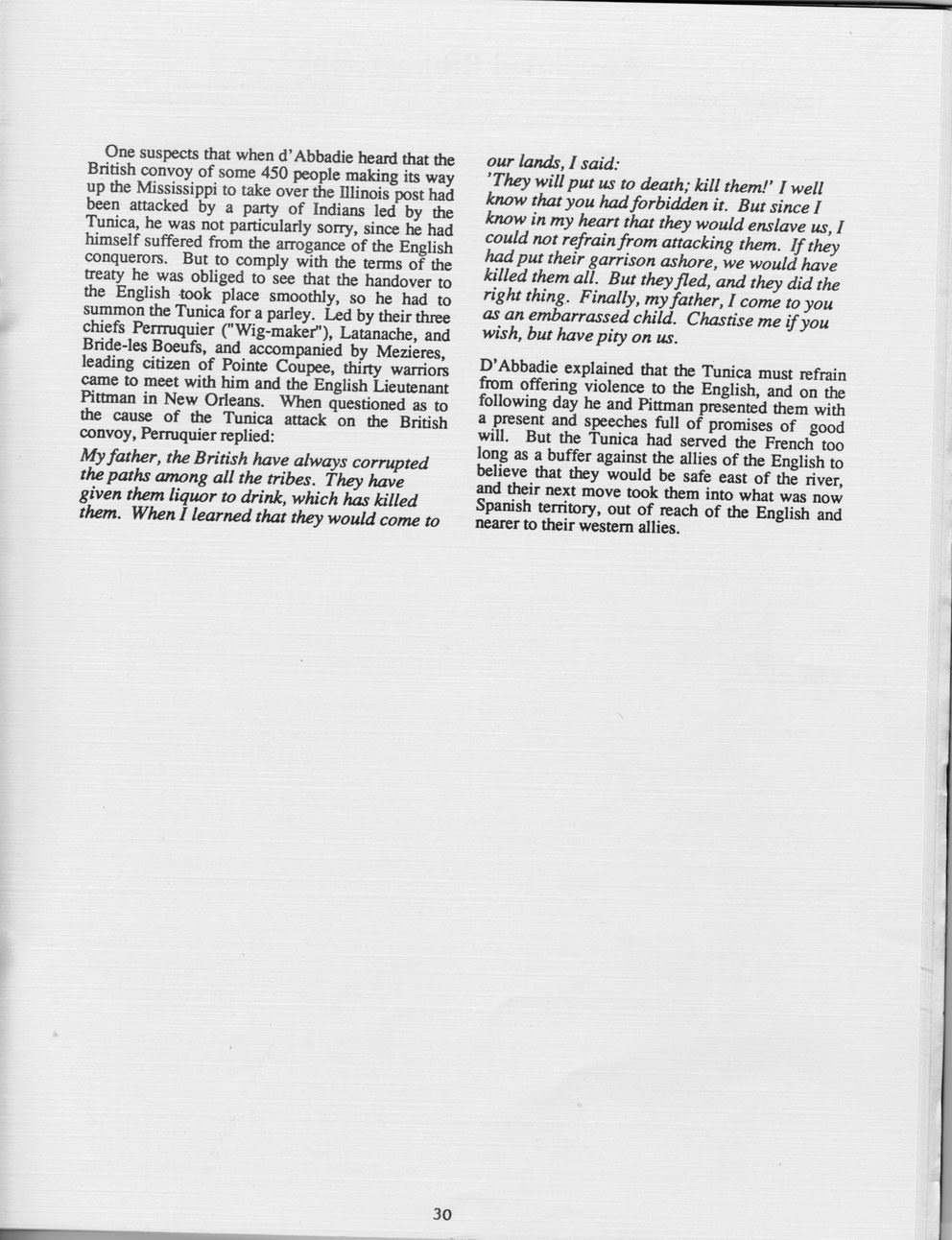This text was obtained via automated optical character recognition.
It has not been edited and may therefore contain several errors.
One suspects that when d’Abbadie heard that the British convoy of some 450 people making its way up the Mississippi to take over the Illinois post had been attacked by a party of Indians led by the Tunica, he was not particularly sorry, since he had himself suffered from the arrogance of the English conquerors. But to comply with the terms of the treaty he was obliged to see that the handover to the English took place smoothly, so he had to summon the Tunica for a parley. Led by their three chiefs Perrruquier ("Wig-maker"), Latanache, and Bride-les Boeufs, and accompanied by Mezieres, leading citizen of Pointe Coupee, thirty warriors came to meet with him and the English Lieutenant Pittman in New Orleans. When questioned as to the cause of the Tunica attack on the British convoy, Perruquier replied:
My father, the British have always corrupted the paths among all the tribes. They have given them liquor to drink, which has killed them. When I learned that they would come to
our lands, I said:
’They will put us to death; kill them!’ I well know that you had forbidden it. But since I know in my heart that they would enslave us, I could not refrain from attacking them. If they had put their garrison ashore, we would have killed them all. But they fled, and they did the right thing. Finally, my father, I come to you as an embarrassed child. Chastise me if you wish, but have pity on us.
D’Abbadie explained that the Tunica must refrain from offering violence to the English, and on the following day he and Pittman presented them with a present and speeches full of promises of good will. But the Tunica had served the French too long as a buffer against the allies of the English to believe that they would be safe east of the river, and their next move took them into what was now Spanish territory, out of reach of the English and nearer to their western allies.

Native Americans The-Tunica-Biloxi-Tribe-its-Culture-and-People-(38)